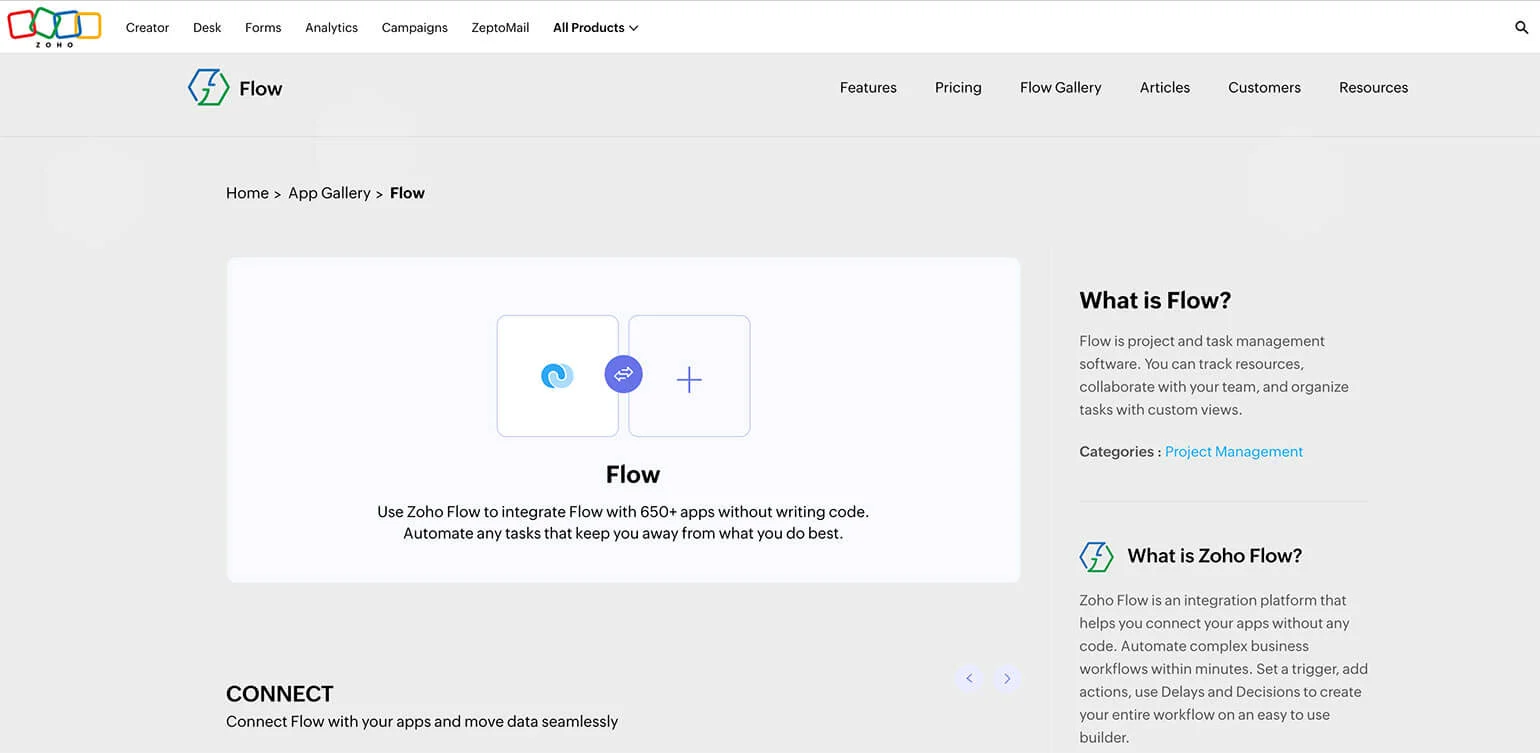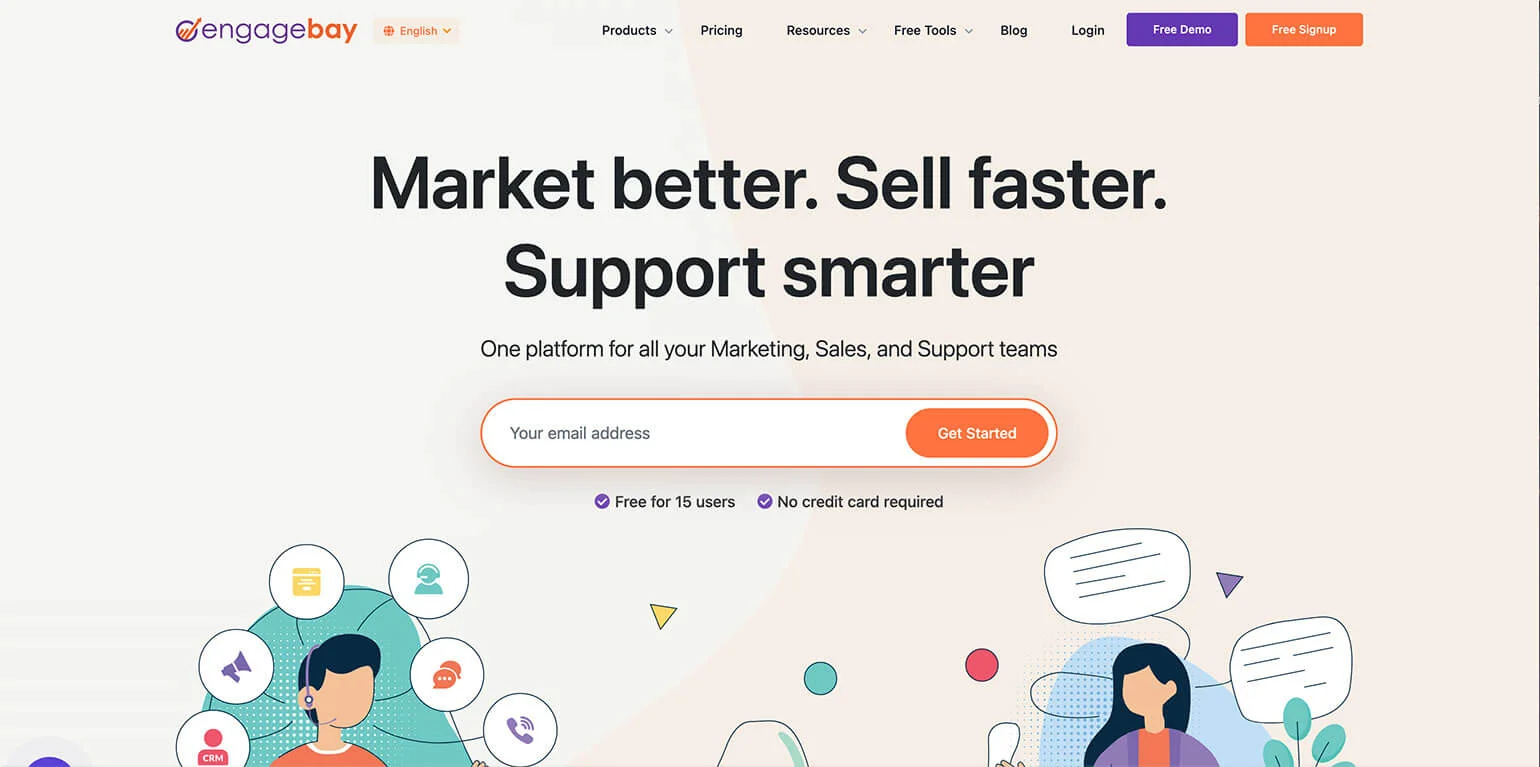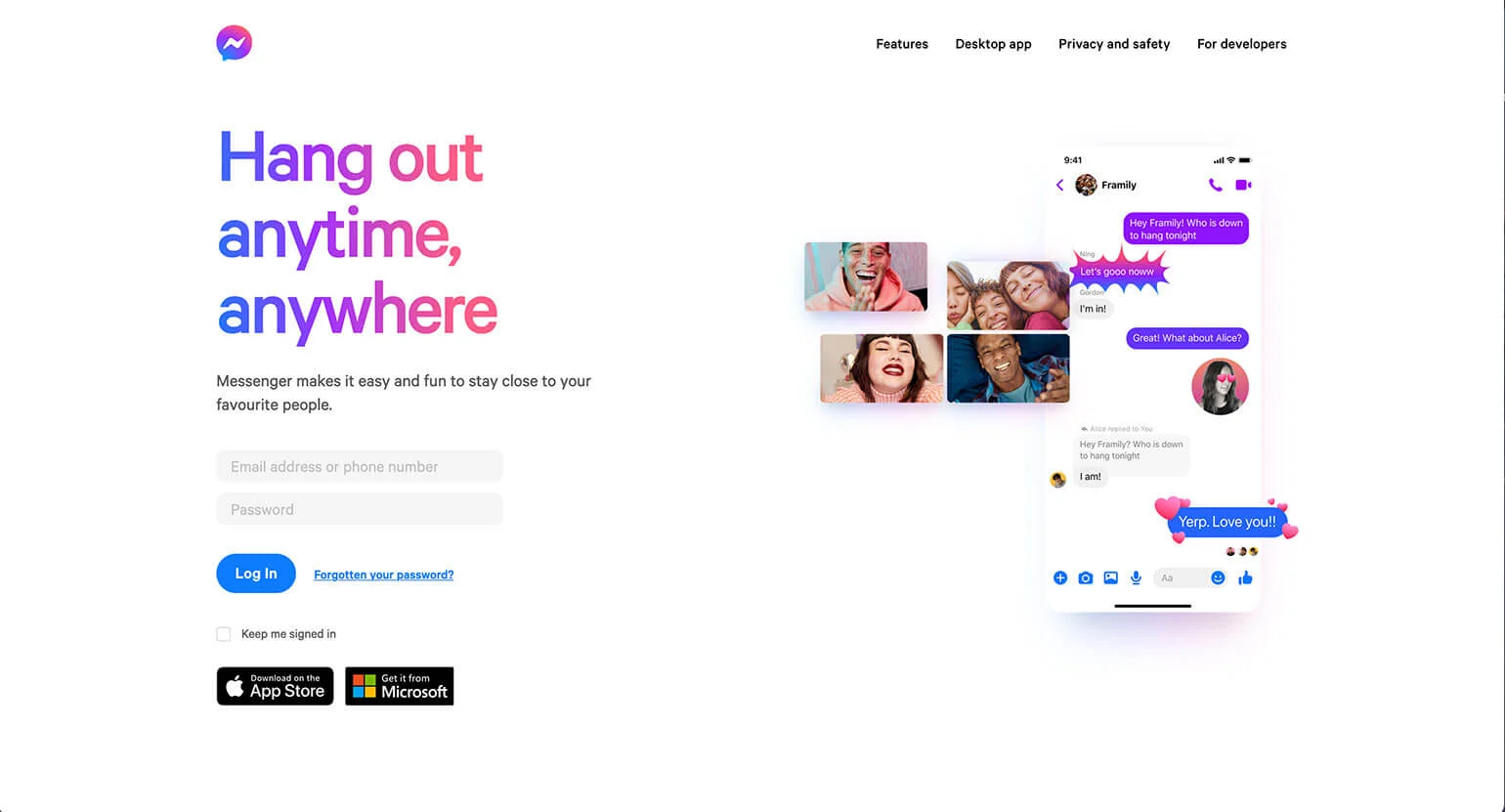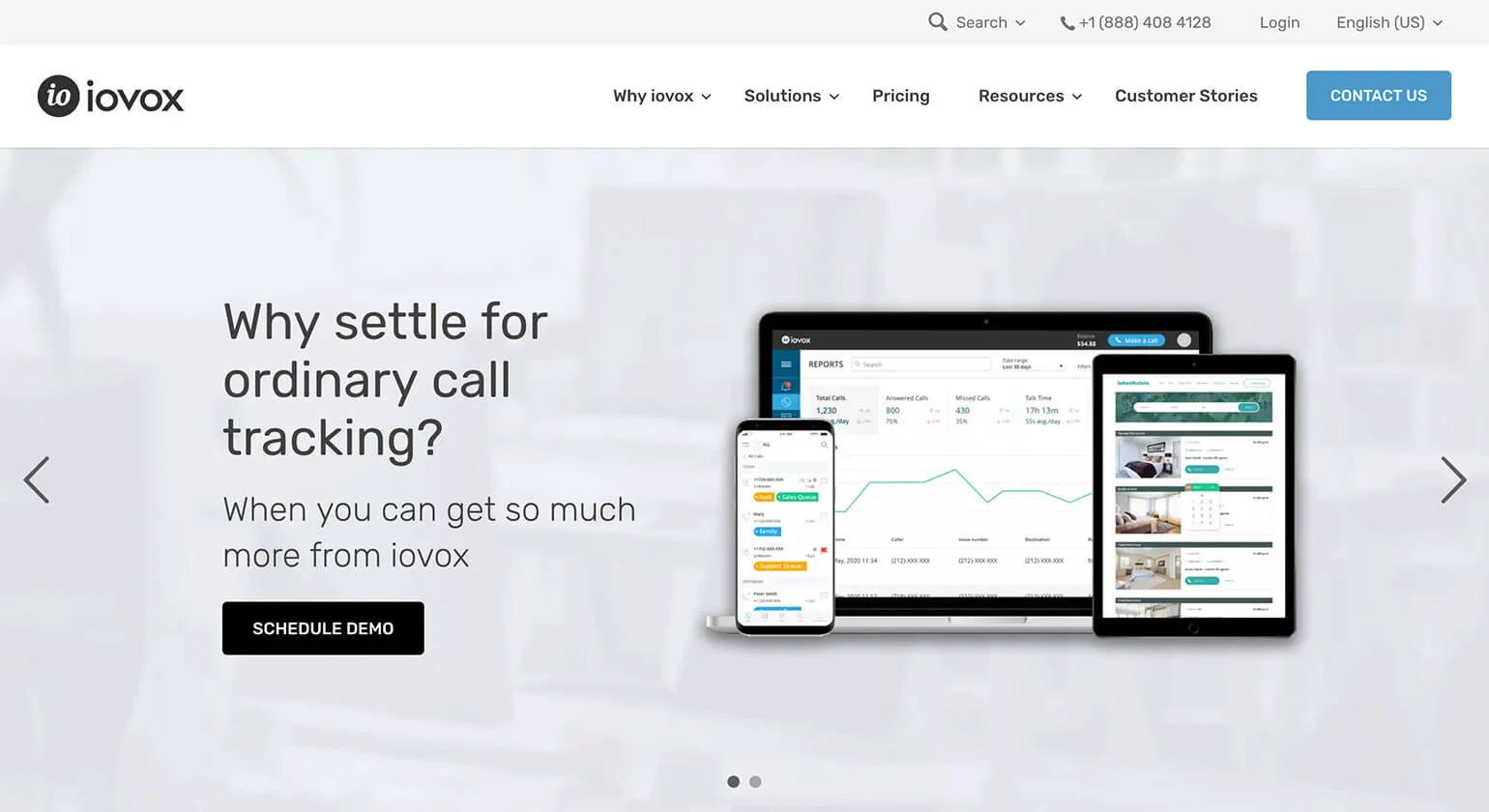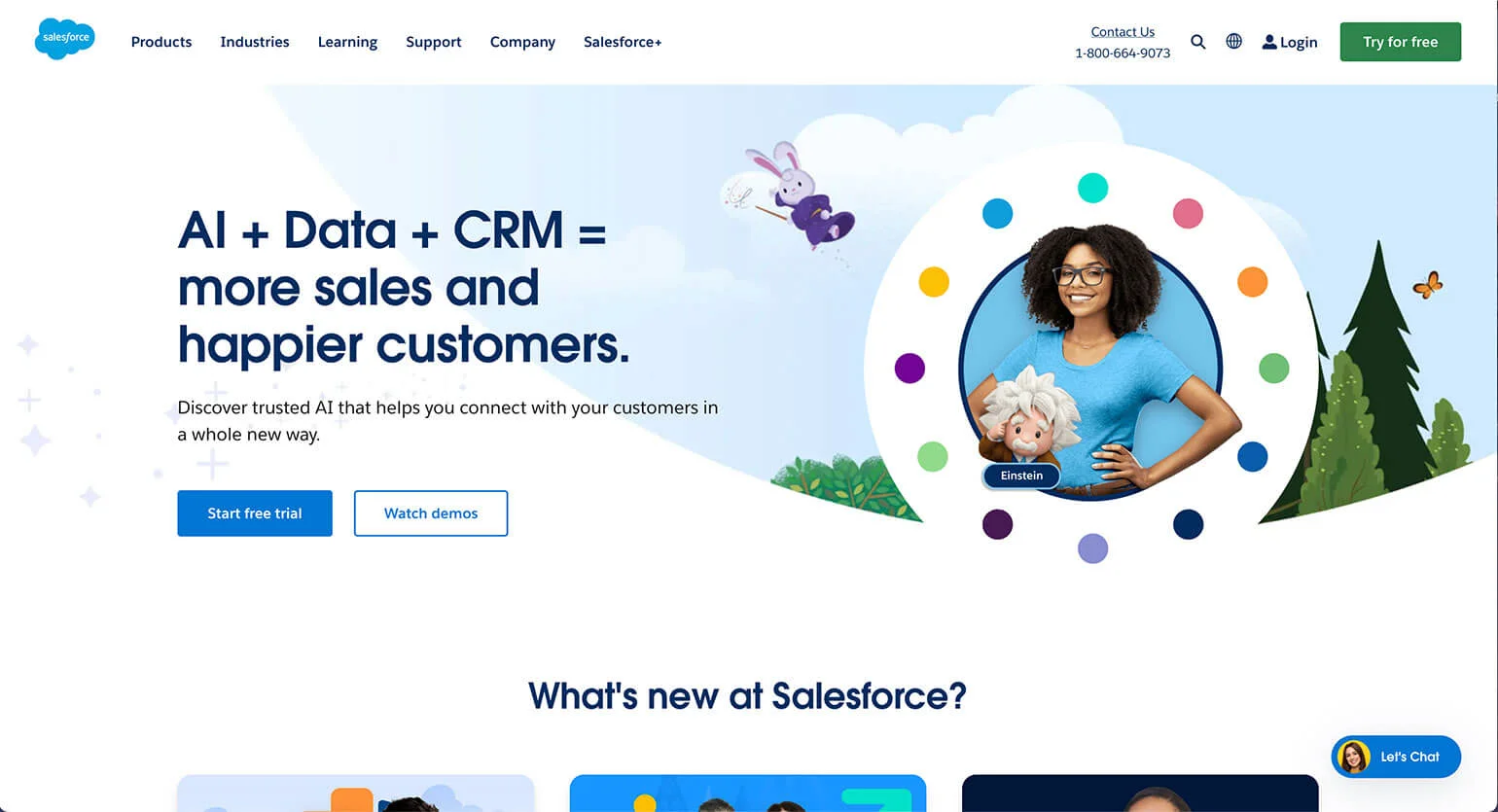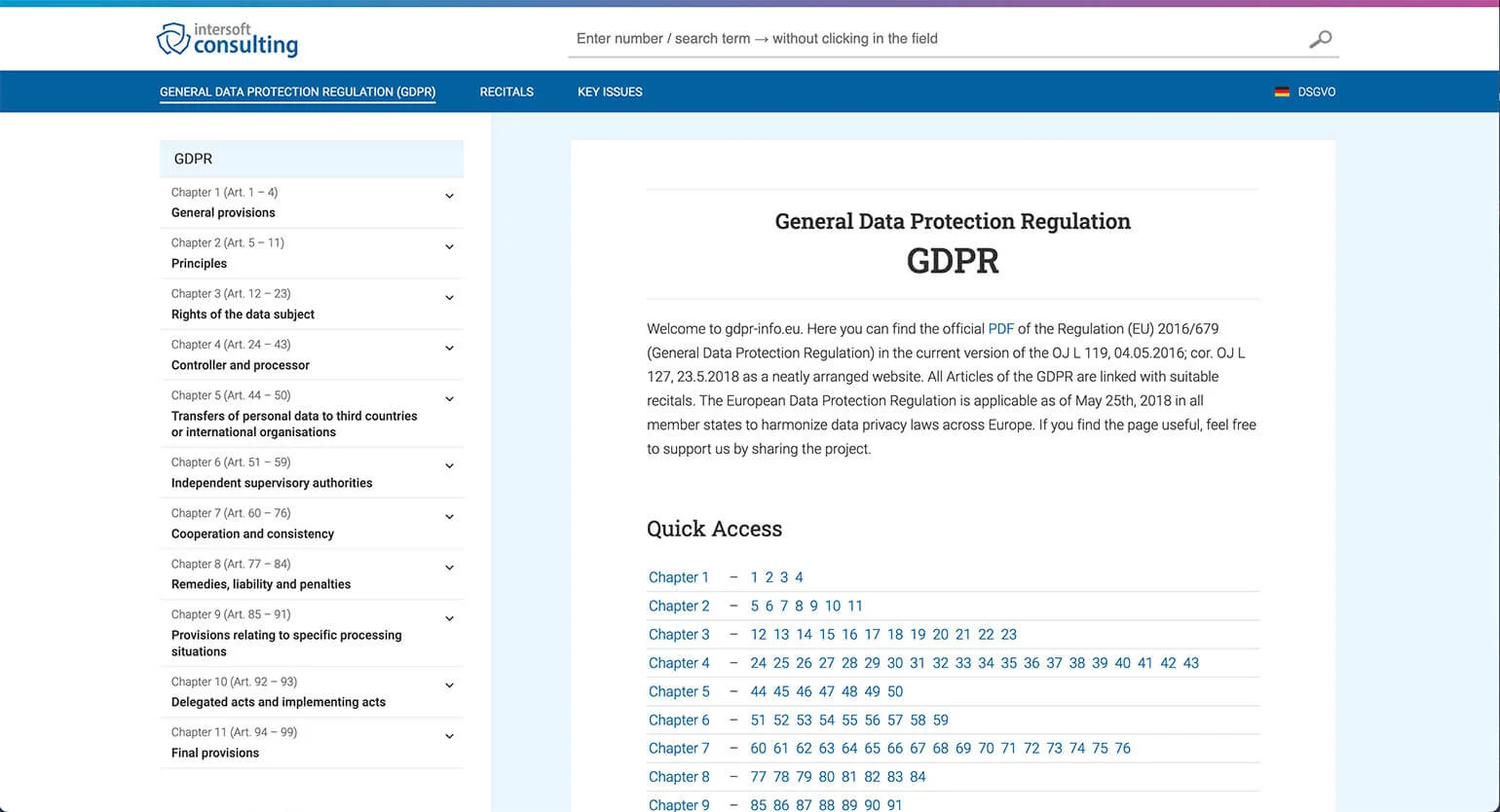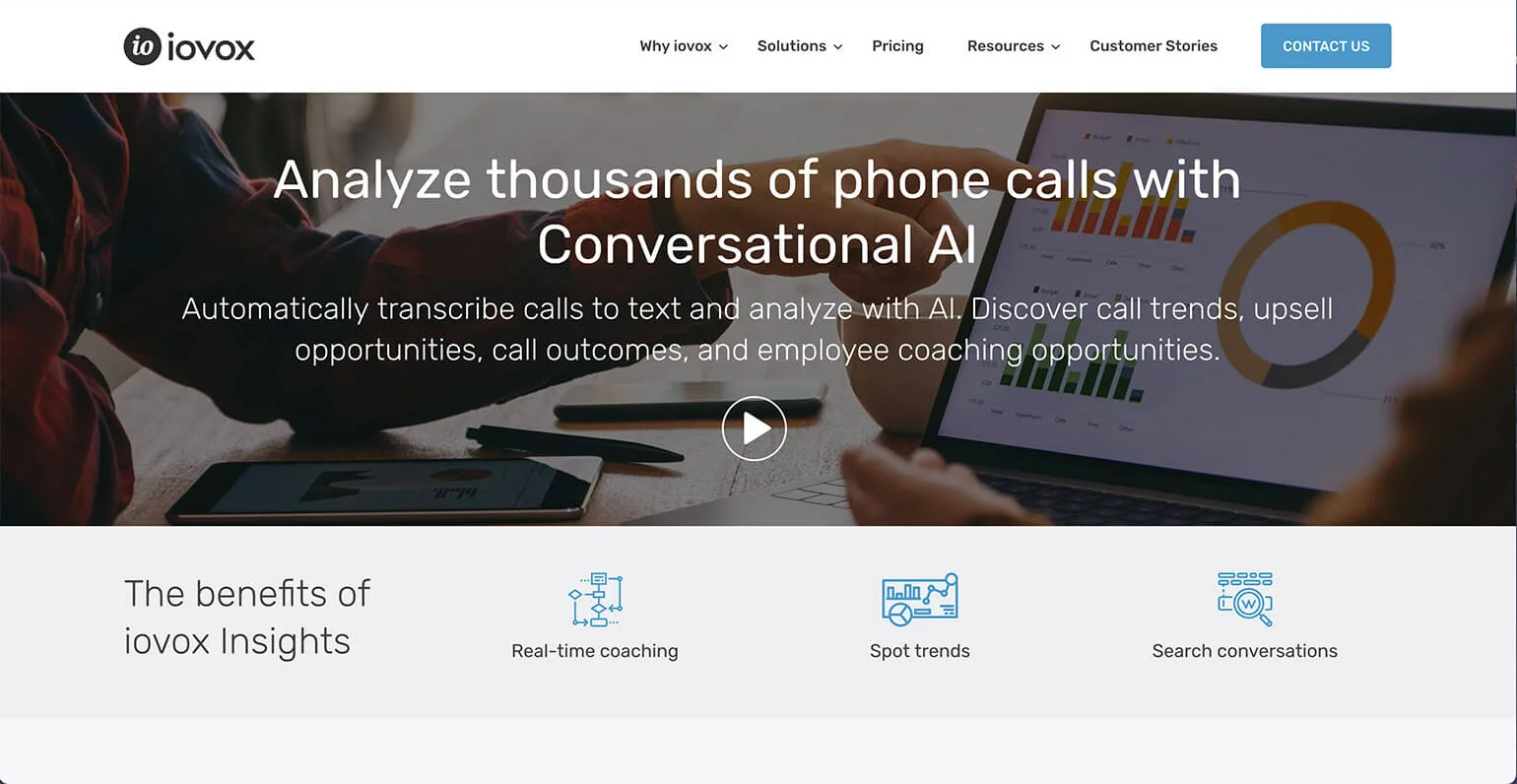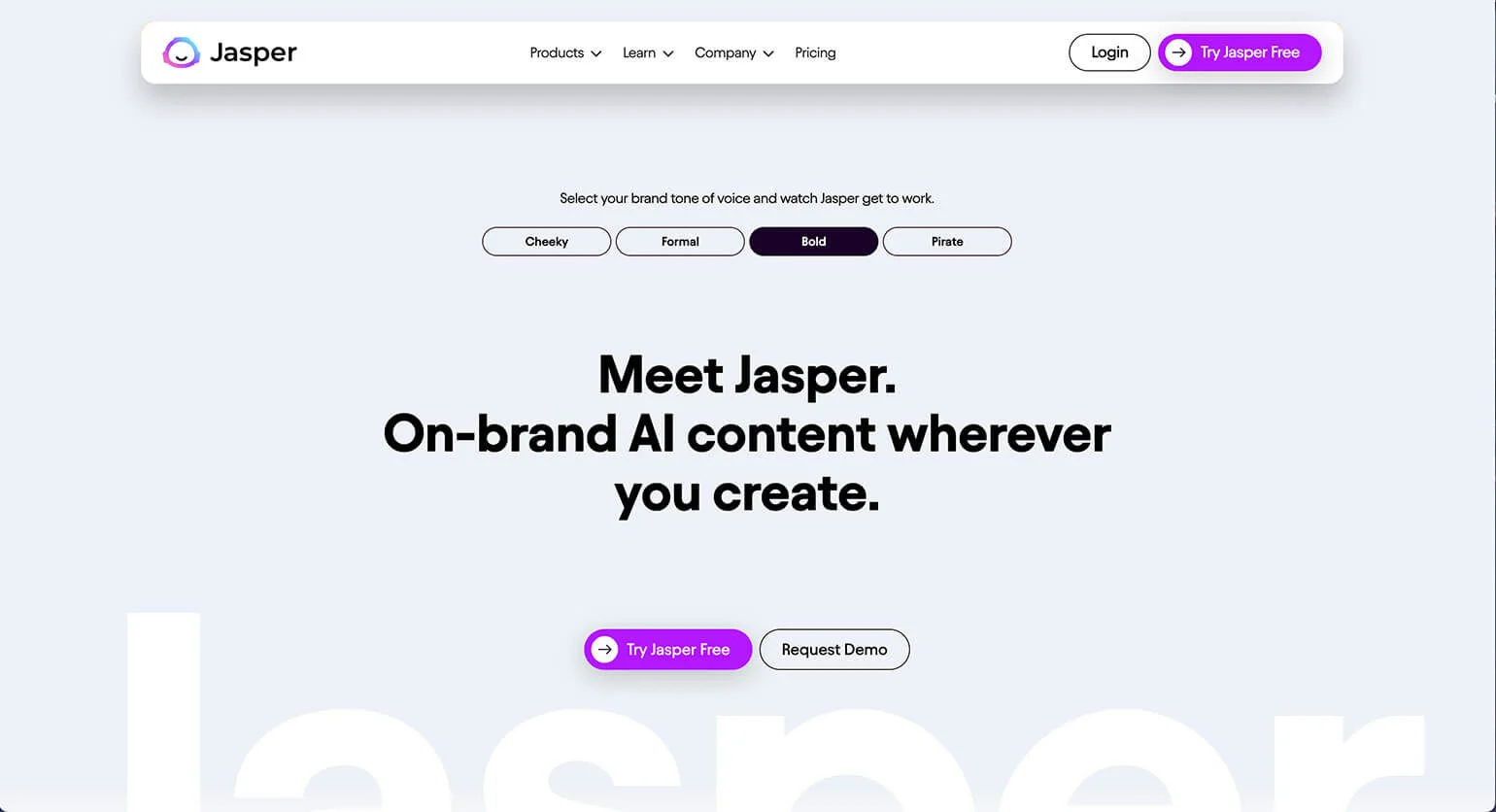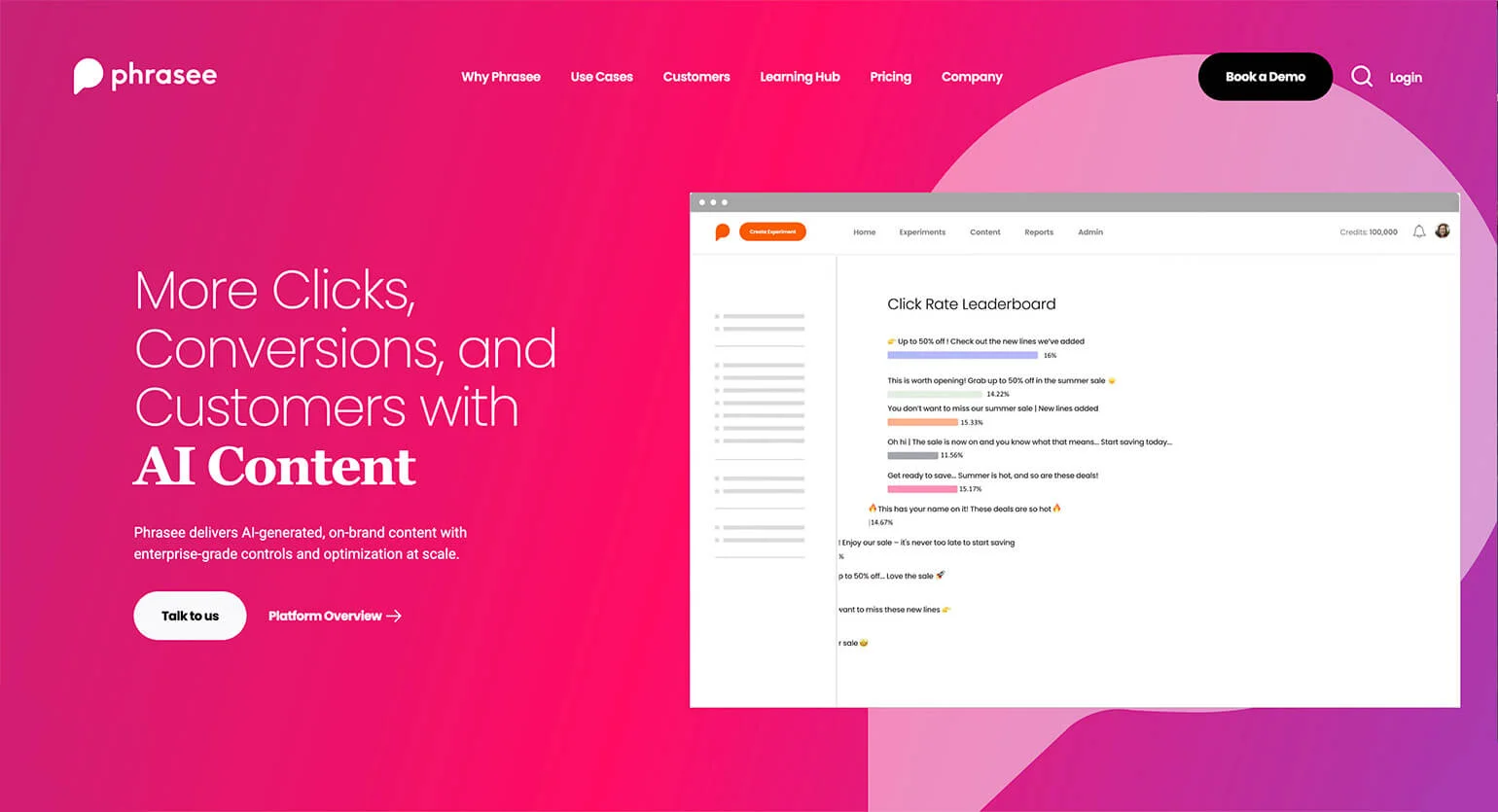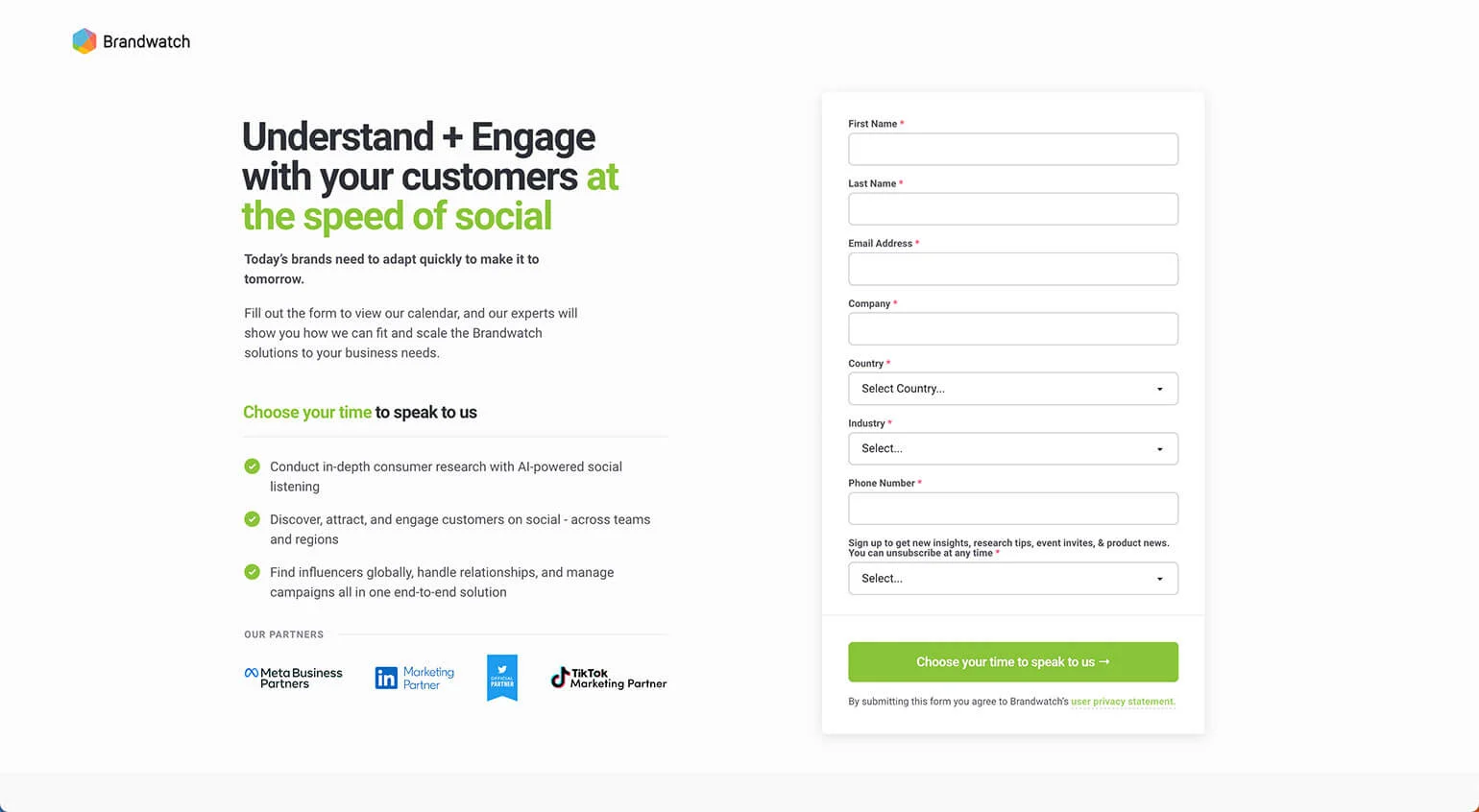AI Marketing: How to Leverage it + Tools to Use
conversational intelligence, marketing, artificial intelligence, conversational ai,
AI is seemingly everywhere now, so it’s no surprise that it’s now a fundamental part of most marketing stacks.
AI marketing enables marketing teams to quickly make data-driven decisions, automate tasks, and provide real-time insight into campaigns.
But how exactly can you leverage it?
In this article, we’ll cover what AI marketing is, the four types of AI marketing applications, their use cases, and tips on implementing successful AI marketing strategies.
We’ll also explore the various benefits and challenges of AI marketing and introduce you to the top five innovative and groundbreaking AI marketing tools.
This Article Contains
(Click on a link to jump to a specific section)
- What Is AI Marketing?
- 4 Types of AI Marketing Applications
- 5 Use Cases and Examples of AI Marketing
- How to Implement an AI Marketing Strategy?
- What Are the Benefits of AI Marketing?
- What Are the Challenges Facing AI Marketing?
- 5 Game-Changing AI Marketing Tools
Let’s get started!
What Is AI Marketing?
AI marketing uses artificial intelligence to assist your business in your marketing activities and improve overall marketing campaign performance.
With AI by your side, you can optimize expenditure, customize content, and save tons of time to expedite your time-to-value.
Some examples of AI marketing technologies include:
- Picture recognition applications
- Personal assistants, such as Google Assistant, Amazon Alexa, Microsoft's Cortana, and Apple's Siri.
- Recommendation engines (like those used in Netflix) that offer recommendations to customers based on their interests.
And while the use cases of AI may seem endless, they typically fall into one of four types of applications:
4 Types of AI Marketing Applications
You can typically categorize AI marketing applications based on the level of complexity they operate within:
Stand-Alone Automation Applications
Stand-alone automation AI applications can automate daily tasks and simplify complex processes — without any additional setup or configuration.
However, unlike machine learning programs, they can’t learn from user interactions.
You can use stand-alone automation AI applications to automate basic marketing tasks, such as:
- Email marketing campaigns
- Social media scheduling
- Lead generation and nurturing
- Content marketing
- Analytics and reporting
Example: Email automation tools like Bravo and Hubspot can queue up automated sales emails and schedule follow-ups for each prospect.
Task Automation Applications
Task automation programs can carry out repetitive and standardized tasks.
They can assist consumers with simple queries or guide them through a specific pre-programmed customer journey. However, they are incapable of handling complex situations, such as complicated consumer requests.
They cannot interpret a customer's intent, deliver tailored solutions, or learn from interactions over time.
Example: Zoho Flow is a workflow automation scheduler that automates data transfers between apps while also keeping a centralized log of each workflow's history.
Integrated Applications
You can embed some apps within your existing applications to enhance their functionality, streamline workflows, and gain access to additional features.
Integrated applications follow logic-based rules. Like stand-alone applications, they can’t learn from user interactions.
These can be integrated with:
- Customer relationship management (CRM) systems.
- Content management systems (CMS).
- Advertising platforms.
- Personalization engines.
- Conversational AI, chatbots, virtual assistants, etc.
Example: CRM applications like EngageBay and ActiveCampaign can help you with marketing automation to improve your inbound marketing campaigns, engage with your audience, and nurture captured leads.
Machine Learning
Machine learning involves computer algorithms that can automatically analyze information and improve digital marketing campaigns.
Advanced machine learning tools can:
- Adapt and learn from user interactions
- Provide services like image recognition, deciphering text, and customer segmentation.
- Anticipate how your customers will respond to certain initiatives, like promotions.
Example: The Facebook Messenger chatbot uses keyword recognition and data from previous user interactions to generate relevant support responses for customer queries.
Now that we’ve got that out of the way, let’s go into five common AI marketing use cases:
5 Use Cases and Examples of AI Marketing
Companies across industries are using AI marketing to develop and implement more comprehensive digital marketing strategies.
Let’s get into that with the help of some examples:
Conversational AI Tools
Conversational AI tools can facilitate interactive and personalized communications between businesses and their customers.
These tools use natural language processing (NLP) and machine learning algorithms to understand and respond to customer queries, offer assistance, and deliver tailored experiences.
They can be deployed through different channels, such as chatbots, virtual assistants, and messaging platforms.
Many organizations use conversational AI tools, like chatbots, to handle customer interactions and promptly respond to customer queries.
How?
These chatbots use customer data from previous interactions to craft personalized responses. Bots reduce workload and give agents more time to handle complex customer problems.
Conversational AI Example:
The real estate industry, in particular, is seeing a surge in the use of conversational AI chatbots.
These chatbots can interact with customers in real-time, answer their queries, and collect the necessary information about their preferences.
Using iovox Insights, a property marketplace, increased the revenue of an agency by $4.9 million.
The agency’s objective was to identify and monetize the missed opportunities within financial services and seller leads.
iovox achieved this by:
- Capturing all applicant calls.
- Using AI-based analysis to determine missed opportunities.
- Generating automatic emails with opportunity details.
- Recapturing lost opportunities successfully.
What’s more?
iovox Insights can easily make these conversations as searchable as email and texts.
Predictive Marketing Analytics
Predictive analytics collects data flowing in and out of your organization and uses various machine learning algorithms, models, and datasets to predict future customer behavior.
By analyzing historical data and identifying patterns, predictive marketing analytics can forecast how customers are likely to behave and make purchase decisions in the future.
How does this benefit you?
These predictions about customer behavior and market trends allow organizations to make data-driven decisions, optimize marketing strategies, and identify new opportunities.
Predictive Analytics Marketing Example:
Stitch Fix is a fashion and retail company that uses a forecast-based sales model.
Users are required to take a style survey while registering with Stitch Fix. Then, using the predictive analytics AI model, buyers are recommended the clothes they might like based on their interests and preferences.
Granular Personalization
With the help of AI marketing tools, you can easily get information about your customers’ likes and dislikes, purchase history and patterns, location, and past brand interactions.
This allows your marketing team to learn about the preferences of each customer on a more personal level and create a personalized experience that caters to the unique needs of each user.
Granular Personalization Example:
Nordstrom, for instance, employs an efficient approach to personalize the user shopping experience. They have added an AI-enabled customization feature to their online shopping cart that remembers the clothing size of customers who are returning their clothes.
While this may not appear to be a major personalization tactic, it results in a smoother checkout process for users and brings them closer to completing their purchase.
Predictive Lead Scoring
Predictive lead scoring uses historical user activity data and predictive modeling to identify sales leads with the highest likelihood of conversion.
How?
Machine learning algorithms are programmed to make accurate predictions about new and existing customers. This involves going through data sets and analytics to establish trends and identify patterns to build a predictive model.
The predictive lead scoring model automatically alerts your sales reps when a customer is on the verge of purchasing your product or service and identifies leads.
Predictive Lead Scoring Example:
Hubspot employs an advanced lead-scoring model driven by machine learning, which sifts through a vast amount of data to identify your most promising leads.
Since this process is automated, it continuously enhances and refines its lead-scoring methodology, ultimately saving you valuable time and effort.
Dynamic Pricing
Dynamic pricing, also known as time-based pricing or demand pricing, lets businesses automatically adjust their prices on the basis of changes in demand for their service.
How?
By analyzing extensive amounts of historical and competitive data, artificial intelligence platforms can provide real-time recommendations for optimal product prices.
This approach has also proven particularly successful in the retail and e-commerce sectors, enabling brands to adapt prices based on product demand, increase sales, and gain an advantage over competitors.
Dynamic Pricing Example:
Marriott International employs dynamic pricing automation to occupy hotel rooms and modify prices according to customer demand.
If, during Christmas, American customers prefer to spend a week in New York, Marriott's Revenue Optimizing Systems (ROS) will automatically adjust the rates as per the demand to maximize revenue.
But a word of caution:
Implementing an AI marketing strategy involves a lot of careful planning and execution. Organizations should align their business objectives with their AI marketing efforts to make sure both align.
Fortunately, we’ll go over everything you need to implement an effective AI strategy now.
How to Implement an AI Marketing Strategy
Careful AI marketing implementation is essential to maintain operational accuracy, improve customer experience, and gain a competitive advantage.
Here are a few things you can do to create a successful AI marketing strategy for your business.
Set Marketing Goals
Defining your marketing goals gives a clear purpose for your AI marketing strategies.
Begin by identifying areas in your campaigns and operations that could benefit from the implementation of AI tactics, such as:
- Segmentation: Identifying and dividing customers based on shared interests and common characteristics.
- Lead generation: Generating customer interest with the goal of converting a lead into a paid customer.
- Engagement: Interacting with customers to encourage audience participation and establish a lasting relationship.
You should then develop specific KPIs, like:
- Conversion rate: It is the percentage of customers who visit your website and complete a desired action (a conversion) out of the total number of visitors.
- Lead scores: This process involves assigning values, in the form of numerical "points," to each lead your business generates.
- Revenue attribution: It is a method that combines different data sets to understand which forms of marketing are generating the most revenue.
These KPIs can help you quantifiably measure the overall performance of your marketing efforts after adding AI to your stack.
Acquire Talent
AI marketing relies on complex algorithms, machine learning, and data analysis.
Hence, this requires a team of skilled professionals that can ensure that your AI tools are effectively implemented and integrated into your existing marketing infrastructure.
If your team lacks the basic knowledge of AI tools and algorithms, gaining insight from such large amounts of data can become difficult.
So, what can you do?
To get AI campaigns up and running, you should hire talent with the required skill sets and AI algorithm and data science knowledge or collaborate with third-party organizations.
Some of these skills include:
- Familiarity with programming languages like Python, Java, etc.
- Knowledge of database modeling, data warehousing, and data processing.
- Ability to write machine learning algorithms
- Knowledge of Intelligent User Interfaces (IUI)
- Problem-solving and analytical skills
Establish Data Privacy Standards
AI tools let you create memorable customer service experiences with the help of customer data.
Although this benefits your business, you must also ensure that your AI platform does not breach your customers' privacy to offer a personalized experience.
Remember, customers today are increasingly concerned with data privacy. Additionally, regulatory authorities are catching up with this demand with stricture legislation to protect online users’ privacy.
To maintain compliance and consumer trust, you should define and pre-program the appropriate privacy guidelines into your AI marketing platform. Failing to abide by the proper privacy standards can harm your business’ reputation and land you in legal trouble.
Maintain Data Quality
Machine learning and AI programs learn and grow by consuming data.
This means — the more data they consume, the more accurate and effective their decision-making will be.
To sustain performance, marketers must ensure that the data is consistent and error-free.
Incorrect data input will result in the AI providing you with wrong insights, which can lead to poor decision-making and damage your bottom line.
To prevent this, marketing teams must collaborate with data management teams and other departments to create a data cleansing and maintenance framework.
Wondering if all this work is worth it?
While artificial intelligence marketing is a relatively new concept, it can have many potential advantages for your business:
What Are the Benefits of AI Marketing?
Artificial intelligence tools can help you optimize your digital marketing campaign and identify what is and isn’t working in your campaign.
Here are some other ways in which your business can benefit from using AI tools in your marketing strategy.
Improved Personalization
AI marketing tools can personalize customer service experiences with unprecedented detail and speed.
How?
Marketers can use AI tools to analyze a customer's purchase history, browsing behavior, and search history. This will help you understand which products your customers are most interested in and lets you create customized product recommendations.
Marketing personalizations can help you increase customer engagement, gain customer loyalty, increase sales, and improve knowledge of your customer base.
Need proof?
A study by Salesforce shows 97% of marketers observed positive business results and an increase in conversion rates as a result of personalization efforts.
Quicker Decision Making
AI marketing tools can perform tactical data analysis in seconds to help marketers make quick decisions depending on the campaign's needs.
For example, AI marketing solutions can help businesses quickly identify which campaigns and marketing channels are performing well. It can then reallocate your budget automatically to ensure maximum ROI and improve your marketing and sales efforts.
All in all, it takes the guesswork out of the game and removes the dependence on human personnel for faster decisions. This allows the members of your marketing team to devote more time to strategic tasks, such as coming up with new marketing campaign ideas.
Increased Campaign ROI
AI can help you boost the ROI of your marketing campaigns through:
- Precise customer targeting: Ensuring the right content reaches your target audience at the right time.
- Facilitating self-service: Customers can utilize AI to assist themselves, reducing your spend on support.
- High-quality content creation: Instantly generate well-written and informational content for blogs or visual posts like images and videos to drive engagement and grab audience attention.
For instance, as marketers, you can use AI to analyze factors such as peak engagement hours, communication channels, and past behaviors to create customized campaigns.
Once the campaign is live, you can use AI-driven real-time A/B testing to observe how customers respond to them. It can identify content that performs better and use it to enhance engagement to improve marketing ROI.
Enhanced Marketing Creativity
A natural language interface combined with a powerful AI algorithm can help you come up with a large number of creative ideas and solutions. This is especially useful at times when you're at a loss for words or ideas.
For example, you can use AI content tools to write informational blog posts or catchy captions for your social media posts. Marketers can also use artificial intelligence to generate engaging photos and videos for your product and services.
Nowadays, you can even use generative AI tools to compose unique music and visuals which can be added to your video content!
However, despite its many benefits, AI marketing is also susceptible to certain challenges.
What are those?
Let’s find out.
What Are the Challenges Facing AI Marketing?
AI marketing solutions are still in their early stages of development and implementation.
As a result, there are some drawbacks to consider when integrating AI into your marketing strategy.
Privacy Concerns
Consumers and regulatory bodies closely monitor how businesses use their data.
While implementing an AI marketing plan, you must verify that you are using customer data legally and in accordance with the rules laid down in your country, such as the GDPR (General Data Protection Regulation).
Failing to do so may lead you to face severe penalties and reputation damage.
Additionally, if your AI marketing tools have not been programmed per the regulations, you may not be allowed to use consumer data for marketing personalization.
Configuration Difficulties
Most businesses fail to adopt AI and fully realize its potential due to a scarcity of AI professionals and a lack of expertise in deploying and configuring AI-based systems.
If your workforce is unaware of the intricacies of AI configuration, you may not be able to integrate and configure AI within your existing workflows.
Inadequately configured applications may not function to their full capability, resulting in poor performance. Misconfiguration can also make your system insecure and susceptible to attacks from hackers and malware, compromising valuable client data.
Customer Anxiety
AI collects data from the consumers' online activity and uses it to draw insights and understand their habits and purchase patterns. This may make some customers hesitant to use AI tools to interact with your business.
While customers can explain their problems or clarify their queries in detail with a human agent, they may feel restricted in doing the same with an AI chatbot.
Due to their inability to understand human emotions, AI tools are also (so far) unable to consistently understand customer intent, which can lead to annoyed and frustrated customers.
Workforce Anxiety
Artificial intelligence technology is a leading cause of stress and anxiety among workers about the continued relevance of their skills in the market.
Introducing AI marketing tools in your company may fan this fear among your team members.
This, however, should not be the case.
You should use AI to improve and supplement your workforce's talents by saving their time and energy, which ultimately results in higher productivity and more profit for your organization.
For instance, AI can assist your staff in identifying and forecasting trends, creating client profiles, and analyzing customer journeys.
This, in turn, will allow your workforce to produce personalized content for each client profile in each stage of the marketing funnel to convert them into paying customers.
As a business owner or team leader, you should understand that no matter how advanced AI technology gets, you still need human involvement to get the desired results from AI.
Why?
If not handled appropriately, AI can disrupt your operational efficiency and bring more harm to your company than good.
Data Quality and Training Time
You can program and train AI to perform tasks that are in line with your organization's goals, consumer preferences, trends, and intent.
However, this learning process necessitates data quality assurance.
Furthermore, AI algorithms and machine learning need a surplus of data and time to obtain useful customer insights, which they can use to make decisions and predictions.
This is why you must ensure that the data you feed into your AI tools is accurate and reliable — along with giving it the time it needs to collect that information.
Ready to leverage AI marketing into your business processes?
Check out the top 5 tools that can help you do that.
5 Game-Changing AI Marketing Tools
Here are some of the best AI marketing tools you can use to get started with artificial intelligence marketing.
iovox Insights: A Brilliant Conversational AI Tool
iovox Insights is a conversational AI tool that lets you record and transcribe conversations and derive key customer interactions and analytics data.
It also allows you to spot customer trends, perform real-time employee coaching, and search conversations for keywords and highlights.
You can use iovox to:
- Make Every Customer Conversation Searchable: Search old customer conversations and transcribed calls. These abilities let you promote transparency within the company and make it easy to refer to essential call logs.
- Track Customer Calls with Keywords: iovox’s keyword spotting feature lets you automatically add specific phrases and keywords to the AI to detect them from recorded calls. The AI monitors them to uncover keywords that:
- Boost customer satisfaction and customer experience.
- Improve customer retention.
- Build trust and better customer relationships.
- Evaluate KPIs to Improve Customer Experience: iovox Insights can track and spot trends and forecast outcomes based on call interaction standards that are vital to you.
Jasper AI
Jasper AI lets you create high-quality ad copies, landing pages, and social media posts. It can also generate human-like text and write detailed articles because it mirrors the way humans write through sentiment analysis.
It uses the GPT3-model developed by OpenAI (also the developer of ChatGPT) to produce human-sounding text. With the help of its easy-to-use interface, you can generate ideas and drafts or edit your posts.
The AI tool also offers various in-built templates for social media, SEO blogging, etc. All you have to do is add your brand name or product, and it will generate the copy for you.
Phrasee
Phrasee is an AI tech tool that focuses on "brand language optimization."
It evaluates customer personas, product lines, and brand regulations and optimizes content to make it unique to your company and target audience.
This AI-powered marketing platform essentially enhances the brand language in marketing materials. It can also generate a copy for emails, Instagram, Facebook, and even push notifications.
Grammarly
Grammarly's AI system integrates machine learning with different types of natural language processes to boost your content marketing efforts.
It’s powered by an advanced algorithm that integrates rules, patterns, and AI techniques like machine learning, deep learning, and natural language processing to help you write better.
This powerful AI marketing tool can help marketers double-check their written material to ensure it is well-written and professional. It has an advanced AI system that can evaluate your spelling and punctuation errors in real-time.
Brandwatch
Brandwatch analyzes data and draws insights using AI and statistics.
It monitors billions of daily online discussions from blogs, news forums, and social media to help businesses gain consumer insights, understand trends, and manage brand perception.
The tool does this by making smart decisions and executing data-driven social strategies at each customer journey stage.
It offers two main features:
- Consumer intelligence platform: The tool searches multiple posts and comments to discover what is relevant and categorizes feedback on the basis of complaints, opinions, etc. It uses AI to derive insights from the data collected and shares them with your organization through alerts and live reports.
- Social media management: It lets you manage content and social interactions on sites like Facebook, Twitter, Instagram, TikTok, etc. You also get a complete picture of your social media marketing activities with all essential social metrics and report on your progress with customizable dashboards.
Some other use cases of Brandwatch include market research, crisis/brand management, content creation, influencer marketing, etc.
Final Thoughts
When used ethically, marketing AI can help organizations acquire, analyze, and retain massive amounts of data to offer greater personalization.
Chatbots and virtual assistants can help you gather real-time feedback, engage with customers, and gain valuable customer data.
AI content tools can also assist you in generating new leads, acquiring customers, and creating the best customer experience for your audience.
And if you're looking for an AI solution that can boost your sales and conversion rates, why not start with iovox Insights?
iovox can transform a regular business phone call into valuable pieces of data and is trusted by prominent businesses in over 100 countries.
To connect, simply click the green call button below, and we’ll be in touch with you shortly.
You can also email us at hello@iovox.com or give us a call toll-free from within the US at +1 888 369 9519.
From outside the US please reach us at one of these numbers:
Las Vegas, USA +1 702 425 7505
London, UK +44 (0)20 7099 1070
Sydney, Australia +61 (0)2 8520 3530
Paris, France +33 (0)1 84 88 46 40
